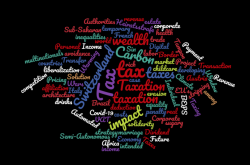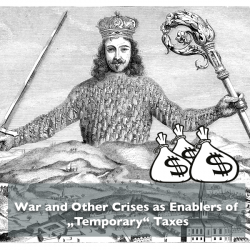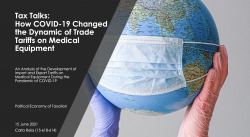
The modern state is a ‘tax state’ (Schumpeter 1918). The level and structure of tax revenue determines what a government can and cannot do, who has to pay for the state and who not, who is empowered and who is dis-empowered. In their podcasts, students at the University of St Gallen analyze tax policies worldwide and their impact on important issues such as health, climate or gender equality.
Start listening and learn more about the exciting world of taxation!







Recent Comments